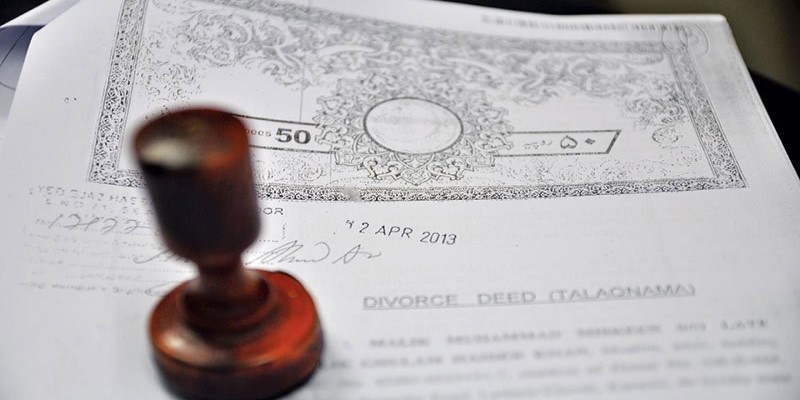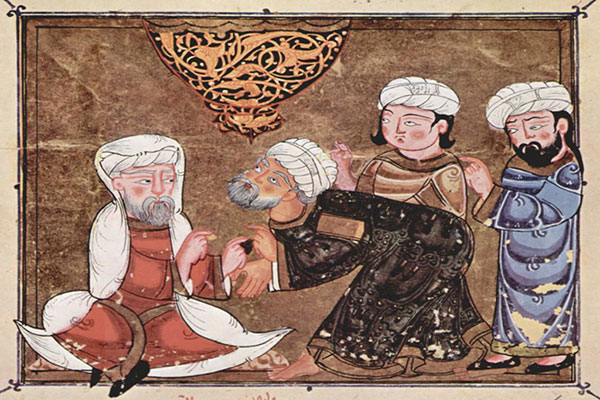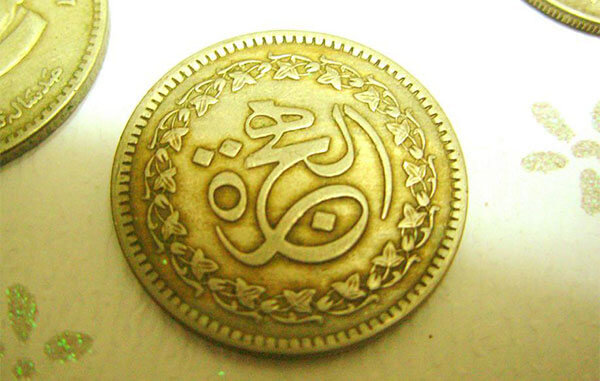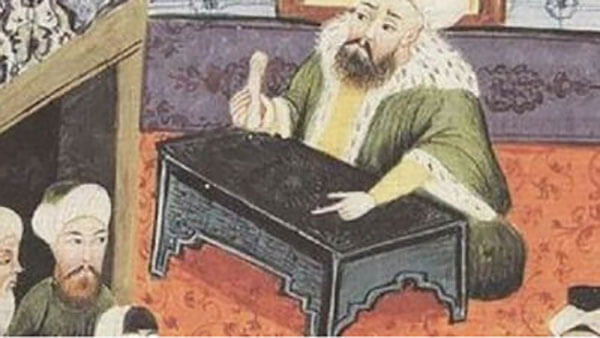The marriage is called court marriages because it is performed in court in front of a magistrate. The proper term for this is “a marriage without a guardian“. According to Shariah Law, women cannot marry themselves, nor they can marry any other woman.
There must be a guardian (Wali) present for her at the time of marriage (nikah). Regarding Court marriage in Islam, our four schools of thoughts have a different view on this particular point.
Court marriages in Islam are allowed & legal according to Ahnaf. They permit the girls that she can marry without a wali. Other three schools differ, and they say it is invalid and void as a girl marries without the consent of wali.
Read Also: How To Get NADRA Marriage Registration Certificate In Pakistan
Explain it: Kya Court Marriage Jaiz Hai?
In this post, I will try to explain how the school of thoughts has based their opinion on court marriage. What are their arguments? While discussing these opinions, I will try to construe impliedly the legality of court marriage in Islam.
Arguments Of Maliki, Shafi’i And Hanbali School Of Thoughts
Imam malik r.a says that there is no marriage without a guardian. It is a condition precedent for the validity of the marriage.
Imam Shafi also holds the same opinion. They base their opinion on hadith that is ‘la nikah ila biwali’ (There is no nikah without wali)[1].
So on the base of above hadith, a woman cannot do marriage of herself nor do someone else marriage (nikah) and if it is done it will be invalid.
Abu Huraira, Ayesha r.a.a Hasan bin Salih, Abu Yousaf, and many other companions agree on this point[2]. Further Imam Ahmad and Yahya r.a. have declared ‘la nikah ila biwali’ hadith to be Sahih hadith.
Evidence by the Hanafi School
As for the view of this school they say. That hadith ‘la nikah ila biwali’ is reported in Jami’ Tirmidhi, Kitab an-Nikah. As follows: “Abu Musa (RA) reported that Allah’s Messenger ﷺ said, ‘Marriage is not performed if (consent of the) guardian is not there.”
Debate On Hadith ‘la nikah ila biwali’
Now when we try to analyze this hadith we will come to know that there is a discussion about whether this hadith is Sahih or not[3].
Read Also: Format of Suit of Dissolution of Marriage on the Basis of Khula
It is also written by imam tahawi that the people of the first opinion hold this hadith as evidence. Because it is narrated from Abu Ishaq through Israel[4].
He narrates from Abu Barda who narrates from his father. That the Prophet Muhammad (PBUH) said that, now the evidence against them is that according to their rules it is not correct to use this hadith as proof because those people who have stronger memory than Israel, like Sufyan and Shu’bah, have narrated it ‘munqati’an’ (broken) from Abu Ishaq.
Dr. Maulana Fadhal Ahmad’s Commentary
In his commentary on an English translation of Jamia Tirmidhi have stated. That this hadith of Abu Musa r.a is not supportive evidence because there is a contradiction in its reporting.
Imam Tirmidhi himself confirmed this, so this hadith is mursal and it is not preferable to deduce rules out of it. Another point is that Shafi does not approve hadith which is narrated by Hajjaj bin Artaah.
But in this case, they are confirming the hadith even though in a chain of this hadith he is there [5].
Some experts of hadith say that there are three hadith that is not to be proven by Prophet ﷺ. la nikah ila biwali is one of them.[6]
Whether ‘la nikah ila biwali’ Is Applied On Male or Female?
When we analyze the wording of this hadith. We get general meaning whether this rule only applies to females or males too.
Imam Shafi did not particularize this point and hence it goes against his opinion. There is another hadith which is also referred to as supportive evidence it is narrated by Ayesha (r.a.a) that “Allah’s Messenger ﷺ said,
If any woman marries without the consent of her guardian then her marriage is void. Her marriage is void. Her marriage is void. If he cohabits with her then for her is the dower as the man enjoyed her. And if her awliya dispute with each other than the ruler is the wali of the one who has no wali
Again this hadith is also da’eef and troubled just like the previous one [7]. For the sake of arguments, we take this hadith as Sahih.
Then point which is to be noted is that if a man cohabits with women than she will get a dower. But dower is something which is given to the wife. If the nikah has been invalid just like the Shafi says. Then it is a case of Zina and Zina cannot be legalized by giving dower.
Thus it is obvious that her marriage is not void. Instead, nikah did take place but because of some technicalities, their marriage became irregular.
Evidence From Holly Quran
Now there are some Quranic verses and these ahadith also contradicts with them such as;
Do not prevent them from marrying their husbands – [Qur’an 2:232]
This verse is evidence for the Hanafi. It attributes the right of nikah to the women and also that the wali has no right to interfere in the matter of the woman.
However, people who oppose Hanafi say this verse is evidence for their stand as well. When Qur’an forbids something to the wali it meant that he had authority over it.
But in the above verse wali is not referred ethical and social pressure is referred and this verse was revealed at the time.
When Ma’qil bin Yasar (r.a) who was stopping his sister from marrying her previous husband [8]. The second verse which the Hanafi use as evidence is as follows
When they have fulfilled their term, there is no blame on you if they dispose of themselves in a just and reasonable manner- [Qur’an 2:234]
In simple words, it is said that once her iddah has expired. She is at liberty to do as she pleases on the condition that she conforms with the Shariah.
If she wishes to remarry, no one can stop her [9]. After the above-mentioned verse, the Quran also mentions. What if a husband divorces her, she will no longer remain lawful for him. Unless she marries a man other than him. [Qur’an 2:230]
This verse also attributes marriage to the woman which is evidence by Ishaarat’un Nass. That woman can do her nikah herself [10].
The opposition also cites a verse in the Qur’an which is as follows. Arrange the marriage of the spouse-less among you- [Qur’an 24:32]
The wali is addressed in this verse. The women do not have the right to marry without the permission of her wali. But there is an issue in this verse.
Interpretation Of Word “Ayami”
The word used in verse is ‘Ayami’ which is the plural of ‘Aym’. It is referred to as someone who has no spouse whether it is a male or a female.
In that context, the verse would mean that it is preferred for both men and women. That they should not take steps for nikah without a wali.
And if someone does this act then what is the Hukam. This verse is silent on this point. If both adult males and females come under the meaning of ‘Ayami’. Then as the nikah of a man, who enters in it without wali is considered to be valid. Similarly, it would be valid if a woman marries without a wali.
Given the above verse, there is another hadith which is used by Ahnaf as evidence.
“Ibn Abbas (r.a) reported Allah’s Messenger ﷺ as saying an unmarried woman (al-Aym) has more right to her person than her guardian. And a virgin should also be consulted, and her silence implies her consent.”[11]
Disagreement On The Interpretation Of Al-Aym
There is a disagreement among the scholars regarding the meaning of ‘al-Aym’. Its meaning is ‘an unmarried woman’.
The disagreement lies in whether it means a previously married woman only. Or does it include an unmarried virgin as well? These are the people who say a woman cannot do nikah without permission of wali.
Others said that ‘al-Aym’ includes a woman who was never married. This latter meaning is confirmed by the Ahl al-lughah and imam nawawi also confirms it [12].
Even If we accept the tafsir of Imam Shafi and state that ‘Aym’ means ‘thaib’ only. Even then the argument agrees and supports the Hanafi view.
This at least proves that a woman who has been previously married has more rights on her nikah than the wali. This point can be proved by a hadith which is as under narrated by Umm SalamaSubai’a al-Aslamiyya had delivered after her husband’s death by half a month. Two men asked to marry her. One was young, and the other was old. She preferred the young man. The old man said, ‘You are not free yet (to marry). Her family was away at that time. Young man hoped that when her family would come. They may prefer him over the other man. She came to the Messenger of Allah (PBUH) and he said, ‘You are free (of the ‘iddah), marry whoever you desire.[13]
There is another hadith which favors the Hanafi view which is
A woman came to Prophet Muhammad (PBUH) and said, O ‘Messenger of Allah! I have given myself to you. The prophet (PBUH) maintained silence and the woman stood there for long.
Then a man got up and said, ‘Messenger of Allah, marry her to me. If you do not need her. The prophet (PBUH) asked him what dower he can afford to give. After which he said, ‘I have married her to you for what you know of the Quran.
At that time there was no wali of the woman present. There is another hadith “Umm Salmah narrates.
After the death of Abu Salmah, the Messenger of Allah (PBUH) came and proposed to me. I said, ‘O Messenger of Allah! At this moment I do not have any wali present.’ He said, ‘No wali of yours, whether present or away, will dislike your marriage with me.’ So Umm Salmah said to her son, ‘O ‘Umar! Get up and do my nikah with the Messenger of Allah (PBUH). Hence, he did their nikah.
Further, there is a narration by companions. That Ali (RA) used to tell people nikah without a wali is impermissible. But if such nikah took place then he would declare it valid.[14]
Umar ibn al-Khattab (RA) said, ‘the woman does not get married off. Unless with the permission of her wali or permission of someone responsible good judgment or the sultan.[15]
So in this way, he permitted the nikah without the permission of a wali. Provided someone of sound judgment or responsibility from among the relatives allow. Even if the person is not a wali.”
View of Hanafis on Court marriage in Islam
In light of the above discussion, it can be asserted. That Hanafi school of law permit marriage without a wali, as result they acknowledge court marriage in Islam.
But at the same time, Hanafi also says. Though the court marriage or the marriage without a wali is valid still the female or male will be accounted on the day of judgment.
Conclusion
What we learn is that, the view of Imam Abu Hanifa (RH) is quite stronger in the matter of court marriage in Islam. There is also a matter of Qiyas. Whereby the Ahnaf says that just as an adult man can utilize his property and marry properly by word. The woman can also utilize her property and marry herself.
Hence, she has a right over her property and her person. While many ghair muqallids try to criticize the Hanafi regarding their ruling on this issue. But some scholars on their side has given a ruling similar to the Hanafi opinion.
Bibliography
[1] Bidayatul mujtahid vol.2, pg.6-7
[2] Al mughni vol.7, pg.5 by ibn qudama
[3] Ashi’-‘at al-lama ‘aat sharhmiskat vol.4, pg 286
[4] sharh ma’ani al-athar vol.3, pg 17-18
[5] Urdu translation of sunan ibn maja by Maulana Muhammad qasim amin
[6] Ibid vol.2, pg 31
[7] Mir’atul mansjih by mufti ahmad yar khan vol.3, pg 285
[8] Dars e tirmidhi by mufti taqi usmani vol. 3, pg 377
[9] Tafsir anwar ul bayan by mufti Muhammad ashiqllahi vol. 1, pg 297
[10] Dars e tirmidhi by mufti taqi usmani vol.3, pg 377
[11] Sahih muslim kitab an nikah
[12] Sharh muslim vol. 9, pg 203
[13] Muwatta imam malik, kitab an nikah
[14] Kanzul ummal vol. 12, pg 532
[15] Kanzul ummal vol. 12, pg 530




Nice information!! really awesome your content
Asslam o alaikum… need guidance about coat marriage…. main ne coat marriage ki ha and i have a son now …. but jab hamaru shadi k 2nd monnth tha mere husbund ne mje 3 times talaq bol dia tha… but sb kahty k pregnency main divorce ni hoti or mje b complete knowledge ni tha… ab jab pata chala k 3 bar kah dainy se ho jati ha to main unk sath ni reh rai about one and half month wo again nikah karna chahty hain k hamara nikah coat wala valid ni tha ab parents ki majodgi main karna chah rahy is that possible ?.
Tallaq to jati hy par is surat me iddat ka dorania bachy ki paidaish tak hota hy. jun hi bacha peda hota hy iddat khatam ho jati hy. ab agar ap ka bacha ho chuka hy to tallaq ho chuki ap ki. ab agar ap ka ex husban dubara nikah karna chahta hy to meri suggestion ye hy k apny maslaq k alim e deen say masla pouchain.
Dusri baat nikah nikah hi hota chahy wo court marriage k zariye say hi kiun na kia ho. ap k masla ab qnuni nahi raha ap kisi mufti say masly ka hall layn.
May allah bless Islam , bless who post this it realy awesome
Looks to be a well researched article on an important subject.